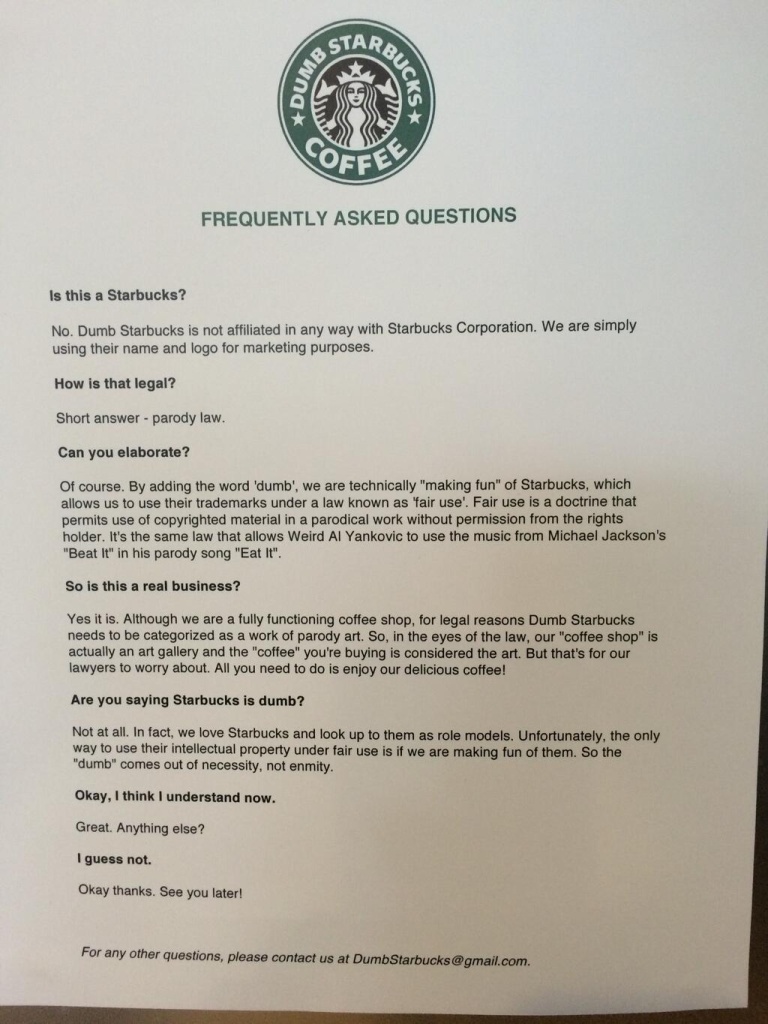I am not a lawyer, but it seems to me that this “parody” of a Starbucks shop is too similar to the real thing and that it would be easy for someone to think they were buying “the real thing” at this store:
A store labeled as “Dumb Starbucks,” using the Starbucks corporate logo and bearing an almost identical look to an actual Starbucks, opened up in Los Feliz on Friday, according to employees.
It was open until about 6 p.m. Saturday and drinks were free as part of what a barista called a “grand opening.”
The coffee shop reopened again Sunday morning and coffee was again free. Dozens of people could be seen waiting in line to get in.
Messages left with people associated with “Dumb Starbucks” seeking comment have not been returned. Messages left with Starbucks Corporation have also not been returned.
The menu was limited.
On Sunday, there still was no business license or health code rating posted in the establishment. The baristas said they were hired from Craigslist.
Despite the popularity, customers seemed confused about what exactly was going on.
“I saw online that there was a Dumb Starbucks sign. One of my friends posted about it, and I live across the street, so I just walked over,” Jonathan Brown told KPCC. He described it as “weirdly off-kilter,” with everything looking like a regular Starbucks except for the word “dumb” in front of it.
Their “FAQ” posting shows that they’re aware that this ploy may not be lawyer-proof:

Update, 11 February: The prank is revealed to be the work of Nathan Fielder.
Mr Fielder appeared in person at the store to make the announcement, where he said there are plans to open a second outlet in Brooklyn, New York.
There had been widespread speculation that the store, which uses Starbucks’ trademarks, was a publicity stunt.
Starbucks said they were aware of the store but denied any affiliation.
“We are evaluating next steps and while we appreciate the humour, they cannot use our name, which is a protected trademark,” a Starbucks spokesperson said in a statement.




